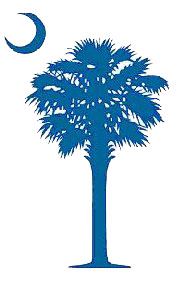Licensure Frequently Asked Questions
Please submit your questions to southcarolinaaba@gmail.com ATTN: Licensure Committee
Q1: Why isn’t the draft bill being released to the certified members?
- The process of licensure for any given profession requires a great deal of coordination between legislators and other interest groups. It is a very different arena than everyday practice. SC ABA is ethically responsible to disseminate a draft that is ready to be filed. It would be unethical and misleading to our membership to release something that was still under review or in the process of editing. This could cause individuals to draw inaccurate conclusions since the document is not complete.
Q2: Why is SC ABA pursuing licensure now?
- Consumer protection
Q3: Why not wait until GA or NC pursue licensure?
- SC ABA makes decision for the state relative to the individuals needs of South Carolina consumers receiving behavior analytic services. Georgia and North Carolina have different state specific processes that regulate licensure for professions.
Q4: Will SC ABA champion bill that impedes certificants ability to practice?
- No, we will table a bill that impacts or prevents certificants in good standing with the BACB to operate as they do now.
Q5: How did the committee get formed?
- SC ABA leadership has been tracking licensure since 2012.
- January 2018, SC ABA leadership consulted with experts (Drs. Green, Dorsey, and Ahearn) in the field of behavior analysis as well as multiple other state chapters (e.g., CALaba, TXaba, Kentucky ABA, TABA) that have already gone through licensure. In addition, SC ABA reached out to in state University programs that provide the BACB approved course work sequence to seek input from the BCBA-Ds that oversee the instate programs.
- Dr.Dorsey (ABAI) recommended the formation of the Legislative Affairs group in 2018. This is to ensure the Licensure effort transcends the transition between Acting Presidents. Dr.Dorsey suggested requiring at least a 3- 5-year term so that committee members had time to understand the licensure process and contribute to the process. Shorter term lengths result in delays in the licensure process.
- In January 2018, SC ABA carefully considered members for the licensure committee who: (1) had previous service time in SC ABA task forces, special projects, or the executive board (2) had practice as a certified behavior analyst for at least 5 years and (3) sought out BCBAs that serviced (a) different age groups (b) different geographic areas in state (c) different populations. Licensure is a tedious and slow process that requires committee members to volunteer hours of service time across several years. Therefore, SC ABA Executive Board developed its internal criterion to ensure we had a well-rounded group that had an already demonstrated record of consistency in service time to the state chapter.
- As of 2019, SC ABA ended the special ‘task force’ that was formed to work with DHHS related issues. We moved forward with Sub-Committee (i.e., Ethics, Licensure, and Social) to address the separate organizational goals of the state chapter. This information is also documented on the SC ABA website.
- Yes, the APBA example bill exemptions list was used in the draft bill. This includes exemptions for OBM (organizational behavior management) and non-human research. SC ABA is working with our lobbyist and state officials to determine which exemptions would be applicable for South Carolina.
Q7: Will current BCBAs qualify to apply for licensure without any additional coursework?
- If you are in good standing with the BACB, you will be eligible and qualify for licensure.
Q8: If you are currently licensed in another state, will there be a reciprocal pathway?
- SC ABA is working with our lobbyist and state government officials to include provisions that would allow reciprocation for behavior analysts with comparable licensure requirements.
Q9: I work in the school systems as a BCBA, how will this impact my ability to practice?
- Public school systems are typically exempt as long as they follow any requirements set forth by federal and state government set forth by the Department of Education and any other prevailing laws. Further, anyone delivering behavior analytic services in a school setting may only do so in the school setting and may not identify themselves as a Licensed Behavior Analyst unless they met the requirements for the certification and license and are Licensed by the state.
Q10: What additional requirements will there be in order to maintain licensure?
- We anticipate the requirements will align with the standards set forth for similar professions (e.g. Marriage and Family, Addiction, and Licensed Professional Counselors) that require licensure.
- Background checks with fingerprinting
- Fill out an initial application plus pay administrative fees
- Maintain your certification with the BACB
- Complete renewal application as required
Q11: How long does it take for the process to be enforced after a bill is passed?
- This may range state to state from as little as 6 months to 2 years. We anticipate the South Carolina will be closer to 6 months.
Q12: Will the DHHS Medicaid approved providers be allowed to continue providing behavior analytic services without certification and licensure?
- SC ABA Licensure Committee is dedicated to working with DHHS and DDSN to develop a strategic plan that will hold all professionals delivering behavior analytic services to the same standards.
